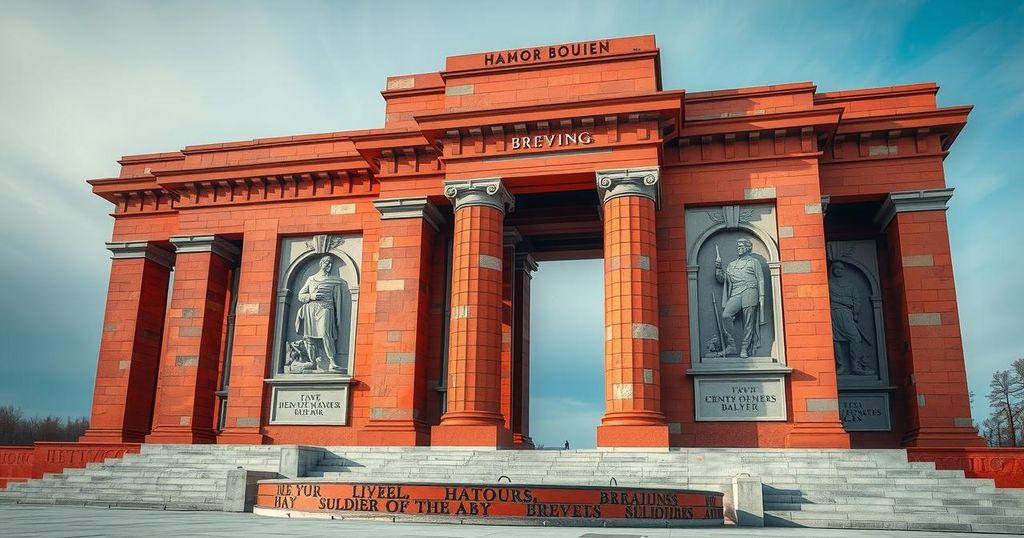North Korea Acknowledges Troop Deployment to Support Russia in Ukraine War

North Korea confirms for the first time it has deployed soldiers to assist Russia in the Ukraine conflict, praising them for their efforts in the Kursk region. This acknowledgment follows Russia’s own recognition of the collaboration. The U.S. expresses concerns and condemns North Korea’s involvement as perpetuating the war. The two nations appear to be strengthening their alliance in opposition to the West, while Ukrainian forces report challenges posed by North Korean troops.
SEOUL — In a notable development, North Korea has openly confirmed the deployment of its soldiers to aid Russia in the ongoing conflict in Ukraine. This acknowledgment, reported Monday by the state-controlled newspaper Rodong Sinmun, highlights the country’s commitment as it praises its troops for their“heroic feats” in the Kursk region, which has recently seen intensified fighting.
This confirmation comes on the heels of Russia’s recent statements celebrating the collaboration between North Korean and Russian troops in battling Ukrainian forces. North Korean leader Kim Jong Un, in his statements, declared that those who fought “for justice” are heroes and exemplars of the honor of their homeland. He also stated plans for a monument in Pyongyang to commemorate these soldiers.
Kim asserted that the valor demonstrated by these troops would earn them respect and honor for generations to come, asserting the significance of their actions in the conflict. There were no specifics provided regarding the number of North Korean soldiers involved, leaving many details about the extent of their participation in the conflict ambiguous.
Previously, both North Korea and Russia only alluded to the presence of these soldiers, with officials suggesting their involvement would align with a 2024 strategic pact promising mutual assistance in cases of military aggression. The U.S. State Department responded to the news by expressing concerns over North Korea’s involvement in the conflict, holding it accountable for prolonging the war and urging an end to military deployments and support exchanges between North Korea and Russia.
These developments signal a deepening alliance between the two nations in their opposition to Western influence. North Korea has emerged as one of Russia’s staunchest supporters in the Ukraine conflict, as Kim endorsed Russian President Vladimir Putin’s efforts, labeling the war a “sacred” endeavor for regional stability. Reports suggest that, in return for military aid, North Korea may be supplying shells and various munitions that Russia sorely requires.
Ukrainian forces opened up about the intense fighting spirit of North Korean soldiers, noting their determination and extreme tactics, such as avoiding capture at all costs, even resorting to self-destruction. Reports indicate that, although they faced heavy losses initially, North Korean combatants adapted quickly to the battlefield conditions.
This military engagement stands out as North Korea’s first significant involvement of combat troops in a foreign conflict. Meanwhile, Russian President Vladimir Putin alleged on Saturday that Russian forces have retaken territories in Kursk previously engaged by Ukrainian troops, a claim Ukrainian President Volodymyr Zelensky disputed, affirming ongoing Ukrainian presence in the area.
Despite the conflicting narratives, North Korea’s state media celebrated a “victory” in their collaborative efforts with Russia against Ukrainian forces, vowing continued cooperation “in all aspects.” The Rodong Sinmun stated, “The victorious conclusion of the operations for liberating the Kursk area is a victory of justice against injustice and a new chapter of history for the two nations’ friendship.”
The recent acknowledgment by North Korea of its military support for Russia in the Ukraine conflict marks a significant development in international relations, particularly reflecting the increasing collaboration between Pyongyang and Moscow. While North Korea’s involvement raises concerns, particularly from the U.S. regarding the escalation of hostilities, it demonstrates how the war is shaping alliances based on mutual interests against perceived injustices from the West. Both countries seem committed to this partnership moving forward, potentially altering the landscape of this ongoing conflict.
Original Source: www.washingtonpost.com






